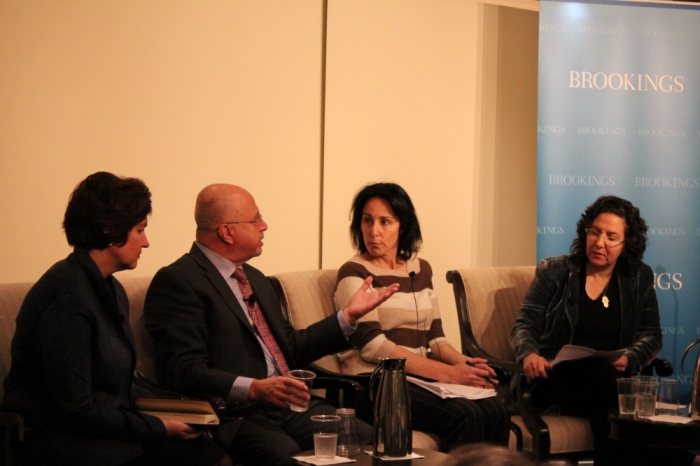79 Percent of Evangelicals See Violence in Middle East as Sign End Times Are Near

WASHINGTON — Nearly eight out of 10 Evangelicals say they believe the ongoing violence in the Middle East is an indication that the rapture is on the horizon, a new survey released Friday shows.
Research conducted by the Brookings Institute's Center for Middle East Policy on Americans' attitudes toward the Middle East and Israel found that 79 percent of Evangelicals say they believe "that the unfolding violence across the Middle East is a sign that the end times are nearer."
The survey, which compiled a national sample of 875 adults and an oversample of 863 self-identified Evangelicals with a margin of error between plus or minus 3 to 4 percent, found that only 43 percent of non-Evangelical Christians believe that terrorism in the Middle East is indicative of the apocalypse.
"These numbers are very striking on the end of days theology that these respondents claim motivate them," Politico editor Susan Glasser said during a panel discussion after the release of the survey at the Carnegie Endowment for International Peace.
"Some of these numbers are really stark," she added. "I mean, the percentage of American Evangelicals, according to your survey, who believe the end of times is nigh, is kind of eye popping, at least for secular America or blue America."
The poll also found that 72 percent of Christians and 81 percent of Evangelicals believe that Christ will eventually return but are not sure when that will happen, while 5 percent of Christians and 12 percent of Evangelicals believe that Christ will return during their lifetimes.
Additionally, 75 percent of Evangelicals and 55 percent of Christians who say that Christ will return believe that "things need to happen in Israel" before Christ returns.
Meanwhile, 63 percent of Evangelicals and 51 percent of non-Evangelical Christians believe that "for the rapture or Second Coming to occur, it is essential for current-day Israel to include all of the land they believed was promised to biblical Israel in the Old Testament."
With the Islamic State terrorist organization asserting in February that Muslims will continue to behead all non-Muslims until Jesus returns to slay the Antichrist and ensure that Islam prevails over all the Earth, a question was posed to the panel on whether IS' brand of Sunni eschatology had any overlap with Christian eschatology.
"There is a big gap between that viewpoint and those expressed by a broader segment of our society," Glasser responded. "Just because there are some resemblance between that apocalyptic rhetoric and the apocalyptic rhetoric of the Islamic State as it takes territory and justifies that with ideology in Syria and Iraq, I don't see those things as being meaningfully ressemblent."
When asked to name a "world leader you admire most," Israel's Prime Minister Benjamin Netanyahu was the world leader most commonly listed by Evangelicals. With 16 percent of Evangelical respondents naming Netanyahu, former United States President Ronald Reagan was the second-most listed by Evangelicals with 11 percent.
Although two out of three Americans believe that Israel has "too much influence" on U.S. politics, 39 percent of Evangelicals say Israel has "too little influence" on politics. Thirty-eight percent of Evangelicals say Israel has the right amount of influence on politics.
Although only 26 percent of Americans say that a political candidate's position on Israel matters "a lot" to them, a candidate's position on Israel matters "a lot" to 55 percent of American Evangelicals.
Shibley Telhami, the nonresident Brookings senior fellow who conducted the survey and issued the report, told the audience that Evangelicals weren't always so supportive of Israel and the Jews.
"I look at the history of American Evangelism and, really, I am not talking about the history from the 19th century, but the 20th century, and I find that groups that were the base for which Evangelism grew had completely different positions on Israel, didn't rank Israel as high as priority, didn't have positive views of Jews," Telhami explained. "All of that changed dramatically, principally in the 1960s and '70s. In order for you to understand why this is important, you have to look at that period. That is the period in which [Israel] arises as important in that segment of the population."




























